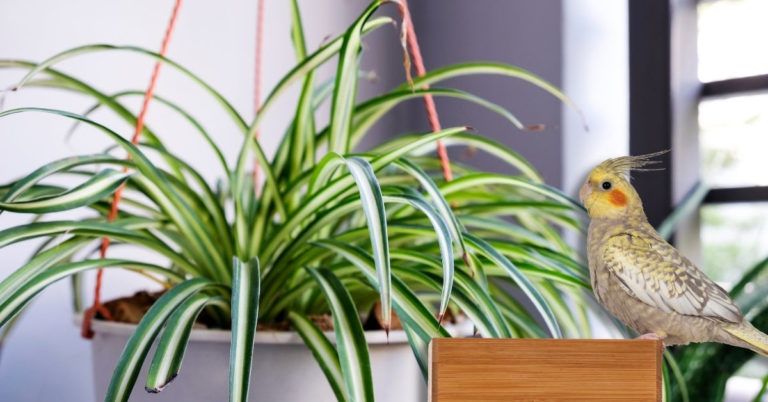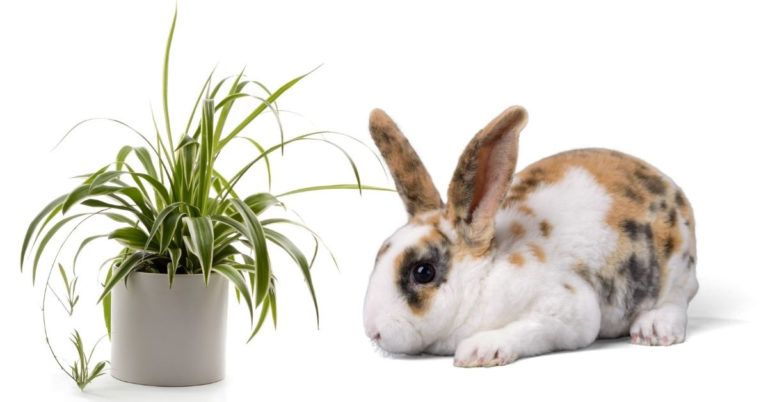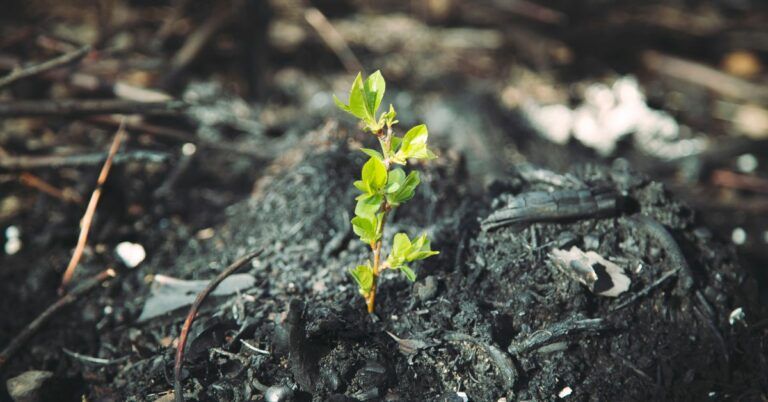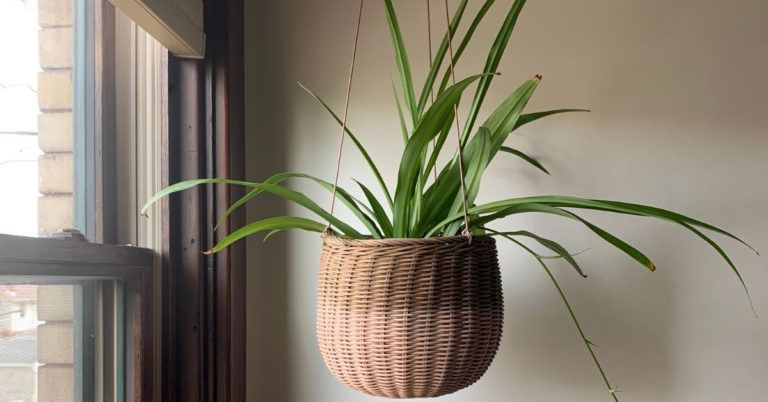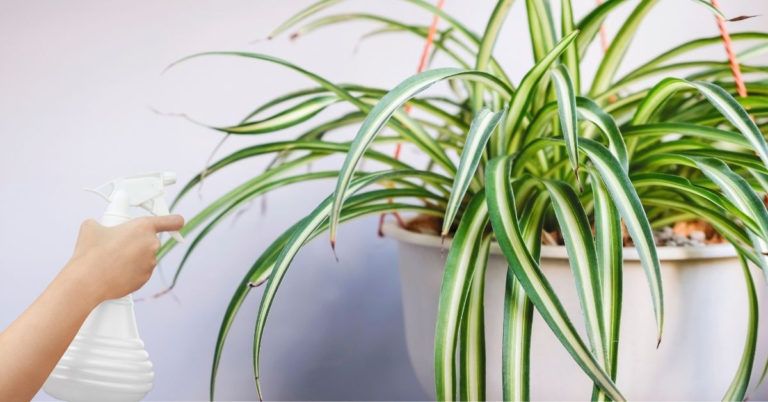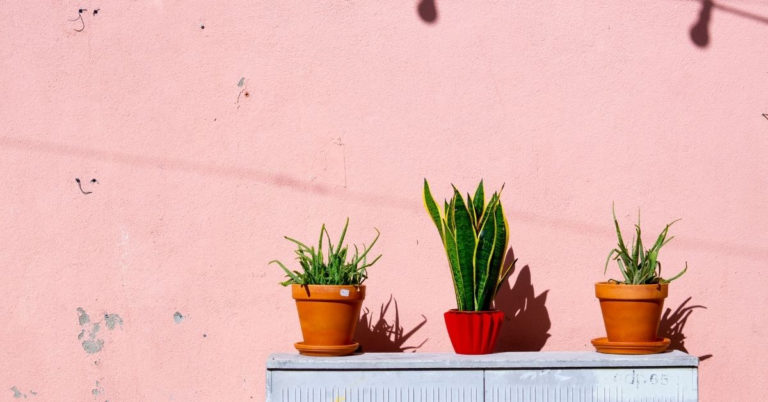Are Coffee Grounds Good for Houseplants? (Explained)
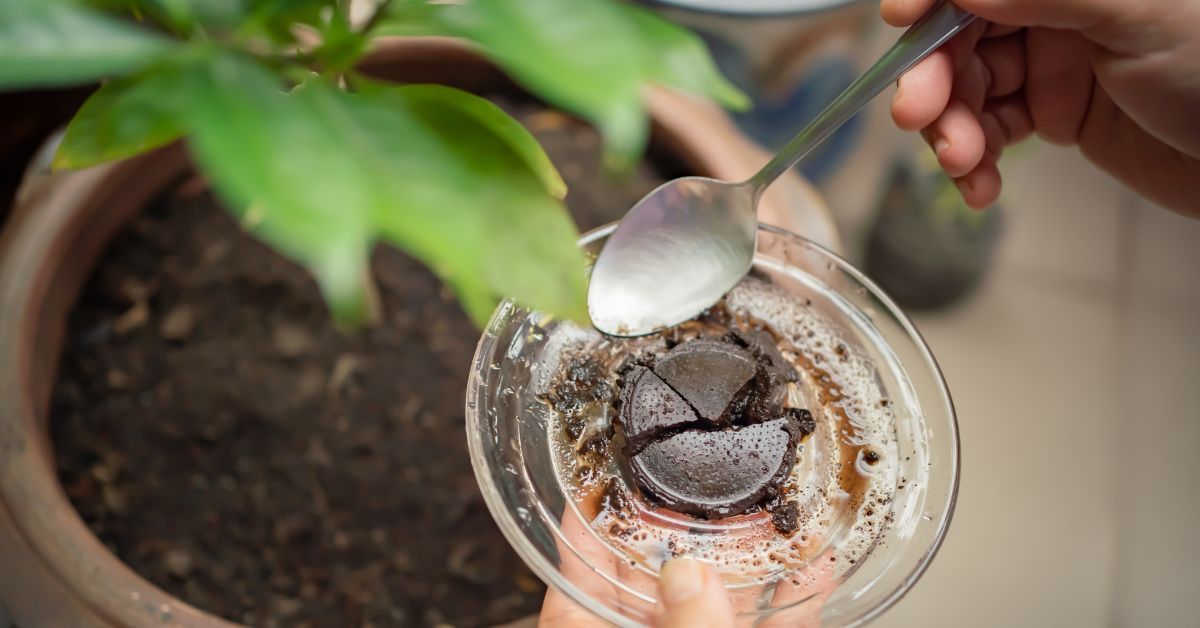
Coffee grounds are often thrown away, but what can you do with them?
Did you know coffee grounds have been used as fertilizer for a long time?
So, in short, coffee grounds are good for plants. For houseplants, coffee grounds are an excellent source of nitrogen.
Therefore, plants benefit greatly from using coffee grounds as a source of fertilizer.
However, there are some potential downsides to using coffee grounds as houseplant fertilizer.
In the following paragraphs, we will delve into this topic in greater detail.
So, keep on reading.
Are coffee grounds good for your houseplants?
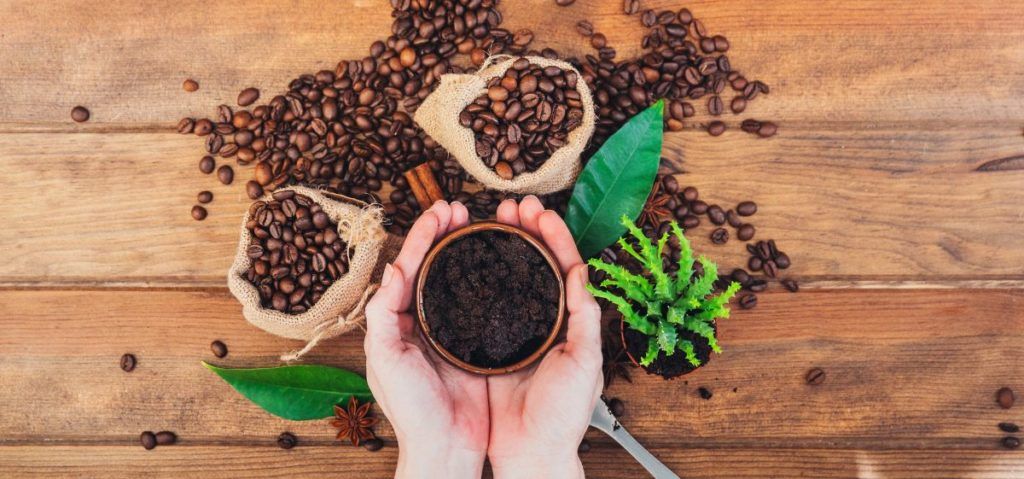
Coffee grounds are good for houseplants because they’re high in nitrogen and other micronutrients.
This makes them a great fertilizer for plants that need extra nitrogen, such as tomatoes, peppers, and roses.
However, you should be careful not to use too much coffee grounds on your plants.
Too much can cause the top layer of soil to grow mold and hinder oxygen getting into the roots of your houseplants.
The best way to use coffee grounds for houseplants is to dilute them with water.
It’s fine to apply coffee grounds directly to the soil as a mulch to help enrich the soil.
However, if you’re using them in your garden or on other plants that thrive in moist ground, it’s best to mix them with some calcium carbonate eggshells first.
This will help balance out the acidity in the coffee grounds and make sure they don’t harm your plants.
Coffee grounds also increase moisture content in the soil—which is why they work well for plants that like wetter conditions.
Do all plants like coffee grounds?
Not all plants like coffee grounds. In fact, some plants don’t like them at all and can be stunted by the grounds.
For example, succulents don’t do well with coffee grounds because they thrive in soil that is low in nutrients.
On the other hand, some plants love coffee grounds and will thrive when given them as a fertilizer.
Cacti are a great example of this: their natural environment is full of sand and gravel, so they love soils that are high in alkalinity (similar to coffee grounds).
Before you start using coffee grounds on your houseplants, it’s important to do your research first!
Not all plants enjoy the same things, so you’ll want to make sure you’re giving your plants what they need nutritionally.
Can I use too much coffee ground fertilizer on my plants?
It’s important to be careful with how much coffee grounds fertilizer you use on your plants.
Excess nitrogen can be harmful, and it’s easy to go overboard with this type of fertilizer.
Coffee grounds are a good source of nitrogen, so it’s tempting to apply them liberally.
However, over-fertilizing can cause problems like leaf scorching, which makes the leaves turn yellow and brown.
If you’re not sure how much coffee grounds to use, start small and increase the amount gradually until you find the right level for your plants.
You don’t want to put too much coffee grounds on top of the soil when using them as mulch.
This is due to the fact that coffee grounds can prevent oxygen and air from reaching the roots of your plants.
So, you may want to mix the coffee grounds with other types of fertilizer to reduce the risk of over-fertilization.
As long as you’re mindful of how much coffee ground fertilizer you apply, your plants should be happy and healthy!
Also read: Can You Water Spider Plants with Milk? (Revealed)
What is the best way to use coffee grounds as fertilizer?
When it comes to coffee, there are many ways to use the grounds.
You can drink it, put it in your garden, or even use it as a face scrub!
But what is the best way to use coffee grounds as fertilizer?
Diluting coffee with water is the best way to use it as fertilizer.
This will help you get the most out of the nutrients that are beneficial for plant growth.
Coffee grounds can also be used directly on plants, but make sure not to overdo it—too much nitrogen can be harmful!
If you have leftover coffee, don’t throw it away-give it to your plants!
They will love the nutrients and antioxidants that come with every cup.
How often should you use coffee grounds as fertilizer?
There are a few things you should keep in mind when using coffee grounds as fertilizer.
For starters, you should know how often you should use it as a fertilizer.
Experts believe that the best time to add diluted coffee grounds is once a week.
You should only use them sometimes and only when the plant’s growth cycle and watering schedule tell you to.
They can, in fact, be used sparingly without harming the plant. Just make sure you add enough for the plant to absorb the nutrients!
Finally, keep in mind that coffee grounds can be used to grow plants—just be sure to apply them carefully!
What are the benefits of using coffee grounds as fertilizer?
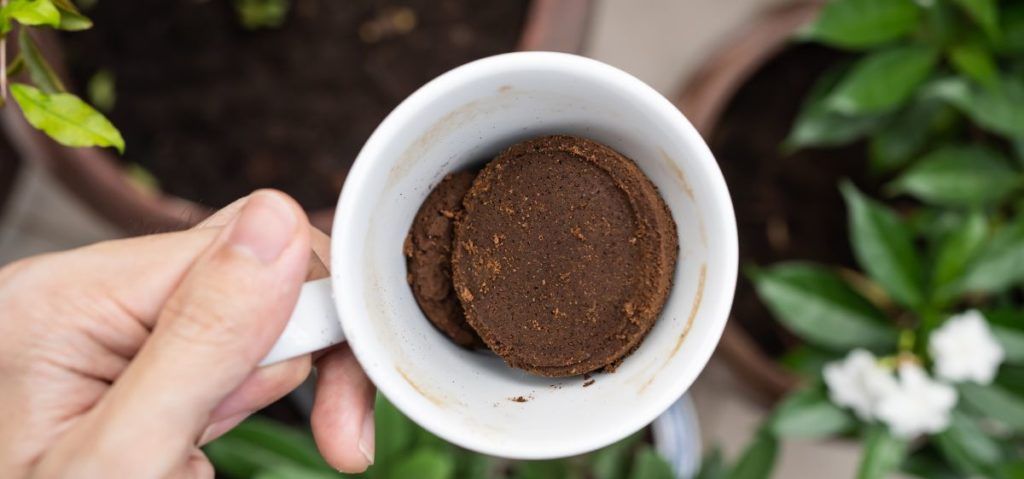
There are many benefits to using coffee grounds as fertilizer for your houseplants.
For starters, coffee grounds have high levels of nitrogen, phosphorus, potassium, and micronutrients, which help plants grow faster and healthier.
They also make an excellent excuse to brew a fresh pot of coffee!
Another great benefit of using coffee grounds as fertilizer is that they are safe for indoor plants.
Unlike chemical-based fertilizers, coffee grounds will not harm your plants or cause any adverse side effects if you use them correctly.
Additionally, they are natural products, which means that they won’t pollute the air or water in your home.
One drawback to using coffee grounds as fertilizer is that you can’t apply them directly to the soil in large amounts.
If you do this, you’ll run into problems such as mold growth, disease, and plant death.
Instead, you should mix the coffee grounds with some water until they form a slurry and then pour it over the soil around your plant.
This will ensure that the nutrients get absorbed properly by the roots.
According to another study, coffee grounds can also be used as weed killers in the garden.
If you have this problem in your outdoor garden, you could try using it as a weed repellent.
Are there any drawbacks to using coffee grounds as fertilizer?
There are a few things to keep in mind when using coffee grounds as fertilizer:
First, coffee grounds can have negative impacts on some plants, like causing them to halt growth.
Second, coffee grounds should not be used indiscriminately—overuse can harm your plants.
Despite these drawbacks, using coffee grounds as fertilizer is a great way to boost plant growth.
They’re an affordable and readily available source of nutrients for plants, and they work just as well as other fertilizers like manure and compost.
So if you’re looking for an easy way to give your garden a boost, using coffee grounds is a good option.
Will using coffee grounds as fertilizer harm my plants?
When it comes to using coffee grounds as fertilizer, some people may be concerned that it will harm their plants.
However, this is not the case if you use them correctly.
In fact, adding coffee grounds to plants can help them in many ways, like giving them more nutrients and keeping pests away.
One thing to keep in mind when using coffee grounds as fertilizer is that they are best suited for acid-loving plants.
If you are unsure about what type of plant you have, it is always best to consult with a gardening expert or your local nursery.
Additionally, you should avoid putting too much coffee grounds directly on the soil.
It’s better to mix them in with the dirt around the base of the plant instead.
Alternatively, as previously mentioned, it is best to dilute the coffee grounds with water and use them to water your soil.
Can you put coffee grounds directly on plants?
It is best not to pour coffee grounds directly on plants, as this can damage them.
Inexperienced gardeners often use too much coffee grounds directly on their houseplants, which can be detrimental to the health of the houseplant.
The grounds can be beneficial to indoor plants, but they need to cool down before use and be diluted with water.
Coffee grounds are great at retaining water, which is why they can be used on plants as a fertilizer.
However, using coffee grounds indoors directly on plants can lead to mold growth in the soil.
Also read: Houseplant Care Guide: Everything You Need to Know to Take Care of A Houseplant
Conclusion
So that’s it! Coffee grounds are a great source of nitrogen and other nutrients that houseplant need to thrive.
The best way to use coffee grounds for your houseplant is by diluting them in water.
However, there are some potential downsides to using coffee grounds as fertilizer, such as the risk of over-fertilizing your plants.
If you do decide to use coffee grounds as fertilizer, be sure to use them in moderation.
Now, I’d love to hear from you.
Do you have experience in using coffee grounds for your houseplants?
Please share them below.
Until then, happy gardening!
